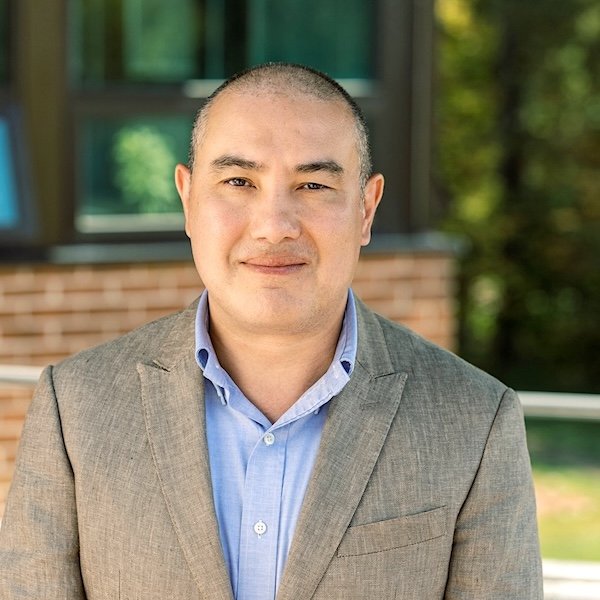Our People
Executive Leadership
-
President and Director
The major objective of Dr. Reiley’s research is to advance the understanding of the generation and maintenance of T cell immunity during acute and persistent infections, including influenza, herpes virus and Mycobacterium tuberculosis (Mtb) infections. His past studies demonstrated that the antigen-specific T cell response, while slow to develop during Tuberculosis infection, is maintained throughout the chronic infection through a process of both proliferation and renewal from newly derived cells originating from the bone marrow. Current studies being carried out in collaboration with Dr’s Blackman and Sun, from UCLA, focus on understanding how a history of prior infections impact the immune response to vaccination or subsequent infection, specifically subsequent influenza virus infections and live-attenuated influenza virus vaccines. Additional studies being carried out in his lab is aimed at examining how antigen availability and the granuloma structure impacts the cellular response.
In addition to his role as a Trudeau’s Director, Dr. Reiley also runs the contract research organization, TICRO BioServices. Within TICRO, he provides pharma clients standardized and customized preclinical services to develop the next generation of vaccines and/or anti-infective therapies using established in vivo mouse models. During this past year TICRO has expanding its services to include additional strains of pathogens and disease models to continue to meet the growing needs of our pharmaceutical clients.
Dr. Reiley earned his Ph.D. in Cellular and Molecular Biology from Penn State University. He completed his postdoctoral work under Dr. Woodland at Trudeau Institute.
Publications
-
Chief Administrative Officer, Treasurer, and Board Secretary
Tina earned her Bachelor of Science in Accounting and Business Management from Empire State University and has built a distinguished career in executive leadership. Her expertise spans for-profit businesses, healthcare, government, and nonprofit organizations, highlighting her qualifications as an experienced and well-rounded and strategic leader.
With over 30 years of expertise in accounting and human resources, including over 20 years in leadership positions, Tina has played a key role in financial management, human resources, risk assessment, strategic planning, and operational oversight. Her 17+ years in the nonprofit sector includes serving as Chief Operating Officer and Chief Financial Officer for High Peaks Hospice, where she successfully guided the organization through financial and operational growth.
Since joining Trudeau Institute in early 2022 as a Financial Accountant and Analyst, Tina has demonstrated exceptional leadership and expertise. In January 2024, she was promoted to Chief Administrative Officer, Treasurer, and Board Secretary, where she continues to drive the Institute’s financial and administrative success.
-
Chief Operating Officer
Alexander Maue, Ph.D., is Chief Operating Officer at Trudeau Institute. He received his Ph.D. in Microbiology & Immunology at the University of Missouri in 2005 and completed postdoctoral training at Trudeau Institute in the laboratory of Dr. Laura Haynes in 2008.
Following this time, he served as Head of Immunology for the Enteric Disease Department at Naval Medical Research Center in Silver Spring, MD, researching basic mechanisms of immunity to enteric bacteria, and led immunology efforts for a number of clinical trials focused on prophylactic treatments and vaccines against enteric infectious diseases.
He then went on to Taconic Biosciences (Rensselaer, NY) where he led their Microbiome Strategic Initiative which included the development of new research products and services and key biopharma partnerships.
He returned to Trudeau Institute in 2021 to advance commercial and research partnerships before taking on the current role of COO. In this role, he partners with the President and Chief Administrative Officer to ensure business continuity and position Trudeau Institute for continued growth.
Scientific Leadership
The power to unleash modern medical breakthroughs lies at the apex of our expertise in immunity and pathogen research.
-
sbradrick@trudeauinstitute.org
Senior Study Director, TICRO BioServices at Trudeau Institute
Principal Investigator at Trudeau Institute
Dr. Shelton Bradrick is a virologist with over twenty years of experience working with pathogenic RNA viruses.
Dr. Bradrick earned his Ph.D. at the University of Nebraska Medical Center in 2002 studying acute myocarditis caused by coxsackieviruses.
He subsequently conducted postdoctoral work at Duke University Medical Center, working initially with hepatitis C virus and then transitioning to mosquito borne flaviviruses as an Assistant Research Professor.
In 2015, Dr. Bradrick was recruited to the University of Texas Medical Branch in Galveston as an Assistant Professor where he continued to work on flaviviruses and molecular mechanisms of multiple sclerosis.
In 2019, Dr. Bradrick transitioned to a Principal Scientist position with MRIGlobal, a non-profit applied research institute located in Kansas City, MO. While at MRIGlobal, Dr. Bradrick led a variety of projects for government and industry clients, focusing significantly on applied research addressing the COVID-19 pandemic as well as biodefense programs.
Dr. Bradrick joined TICRO Bioservices and the Trudeau Institute in March, 2023 to continue directing projects in basic and applied research with particular emphasis on RNA viruses, Mycobacterium tuberculosis, and other significant human pathogen.
Publications
-
Principal Investigator | Director of Educational Programs | Viral Immunologist
Dr. Deborah Brown is a Principal Investigator and Director of Educational Programs at the Trudeau Institute, where she leads cutting-edge research in immunology and influenza vaccine development. She earned her Ph.D. in Microbiology and Immunology from the University of Rochester School of Medicine and Dentistry and previously held faculty positions at the University of Nebraska-Lincoln (UNL). With over two decades of experience in biomedical research and education, Dr. Brown has established herself as a leader in both scientific discovery and mentorship.
Dr. Brown’s research focuses on the design of next-generation influenza vaccines that provide long-lasting, cross-protective immunity—eliminating the need for annual reformulations. Her lab investigates how innate immune stimulators (adjuvants) can enhance vaccine-induced memory responses against influenza. In collaboration with Ampersand Biosciences and supported by NIH Small Business Innovative Research (SBIR) funding, she is also developing and validating novel reagents to study vaccine-induced immunity in preclinical animal models. These tools are essential for optimizing vaccine formulations and anticipating human immune responses prior to clinical trials.
In addition to her scientific work, Dr. Brown plays a central role in Trudeau’s educational mission. She leads the Biomedical Research Scholars Program, an immersive, 15-week accredited undergraduate program that combines coursework in immunology, microbial pathogenesis, and immunological techniques with hands-on laboratory research. She also mentors students through the Summer Undergraduate Research Program, which offers intensive training in research methods, scientific communication, and career development.
Dr. Brown has developed and taught coursework in Immunology, Vaccine Biology, and Professional Development, incorporating active learning pedagogy into all of her teaching. A passionate educator, she extends her reach beyond the undergraduate level by developing outreach programs for middle and high school students to foster early interest in science. As an active member of the American Association of Immunologists (AAI), she contributes to national discussions on immunology education and curriculum innovation.
Her research contributions—particularly in CD4 T cell responses and vaccine adjuvant strategies—have resulted in over 50 peer-reviewed publications and have informed both fundamental and translational approaches to infectious disease prevention. Through her interdisciplinary work and mentorship, Dr. Brown is advancing public health while training the next generation of biomedical scientists.
Publications
-
mchojnacki@trudeauinstitute.org
Trudeau Principal Investigator
Dr. Michaelle Chojnacki leads a research program dedicated to tackling one of the most urgent global health challenges: antibiotic resistance. Her work focuses on the discovery and development of next-generation antimicrobial therapeutics, with particular attention to pathogens of critical clinical concern, including Mycobacterium tuberculosis, nontuberculous mycobacteria and ESKAPE pathogens. These infections are notoriously difficult to treat—current therapies can be lengthy, toxic, and increasingly ineffective due to the rise of multidrug-resistant strains.
Recognizing the limitations of conventional antibiotics—which often target the same bacterial pathways and share similar chemical scaffolds—Dr. Chojnacki is committed to identifying novel drug targets and advancing chemically distinct compounds with unique mechanisms of action. Her team integrates expertise in bacterial pathogenesis, chemogenomics, and computational screening to rationally select and refine lead molecules that bypass known resistance mechanisms.
Dr. Chojnacki brings a strong foundation in studying bacterial persistence and antimicrobial tolerance, particularly in recalcitrant infection states. Her prior work has examined how some pathogens adopt physiologically adapted growth modes that evade treatment, and how these states can be exploited for therapeutic gain. By applying innovative discovery strategies, her research aims to both fill critical gaps in the antibiotic pipeline and deepen our understanding of conserved bacterial survival strategies across diverse pathogens.
At Trudeau, Dr. Chojnacki collaborates across disciplines to accelerate the development of urgently needed antimicrobials, bringing precision, creativity, and translational relevance to the fight against drug-resistant infections.
Publications
National Library of Medicine Michaelle Chojnacki Bibliography
-
Trudeau Principal Investigator
TRN Senior Immunologist and Leader, Flavivirus Research PlatformDr. Kim was trained as a viral immunologist with an emphasis on comprehensive understanding of viral pathogenesis and host immune control against acute and chronic virus infections. Her current research focuses on studying Dengue and Zika virus infections using mouse and non-human primate (NHP) marmoset models. Her research goals include understanding immune pathogenesis, the intervention of vertical virus transmission from mother to fetus, and the evaluation of prophylactic vaccines and antiviral therapies against these viruses that are threats to public health.
Prior to joining Trudeau Institute in 2016, she was extensively involved in preclinical and clinical studies in development of vaccines against HIV, nicotine, allergy/asthma in the Vaccine research unit, Pfizer Inc. Ottawa, Canada for 2009-2015. She brings this experience to her role as the leader of the Flavivirus Research Platform team to develop tools to assess the efficacy of vaccines and therapeutics.
In 1999, Dr. Kim earned her Ph.D. in Viral Immunology at the University of Minnesota at Twin Cities. Afterward, she joined the laboratory of Dr. Marcia Blackman at Trudeau Institute, she studied γ herpesvirus latency as a post-doctoral fellow.
Publications
-
bweinrick@trudeauinstitute.org
Trudeau Principal Investigator
Lead Investigator, Tuberculosis R&D Program
Associate at the Albert Einstein College of MedicineDr. Weinrick’s research focuses on survival mechanisms of tuberculosis bacilli. Mycobacterium tuberculosis, the bacterium responsible for tuberculosis, is estimated to infect over a quarter of the human population and is the greatest cause of mortality by a single microbe. Dr. Weinrick has substantial experience in evaluating the genetic requirements for and regulation of virulence in bacterial pathogens, including animal models of infection for gram-negative, gram-positive, and mycobacteria, and has employed new approaches to the systems level characterization of microbial pathogens, combining genomic, transcriptomic, and metabolomic tools.
Dr. Weinrick earned his Ph.D. in Microbiology from NYU School of Medicine. He was a postdoctoral fellow and research associate in the laboratory of Dr. William R. Jacobs Jr. at the Albert Einstein College of Medicine.
Publications








